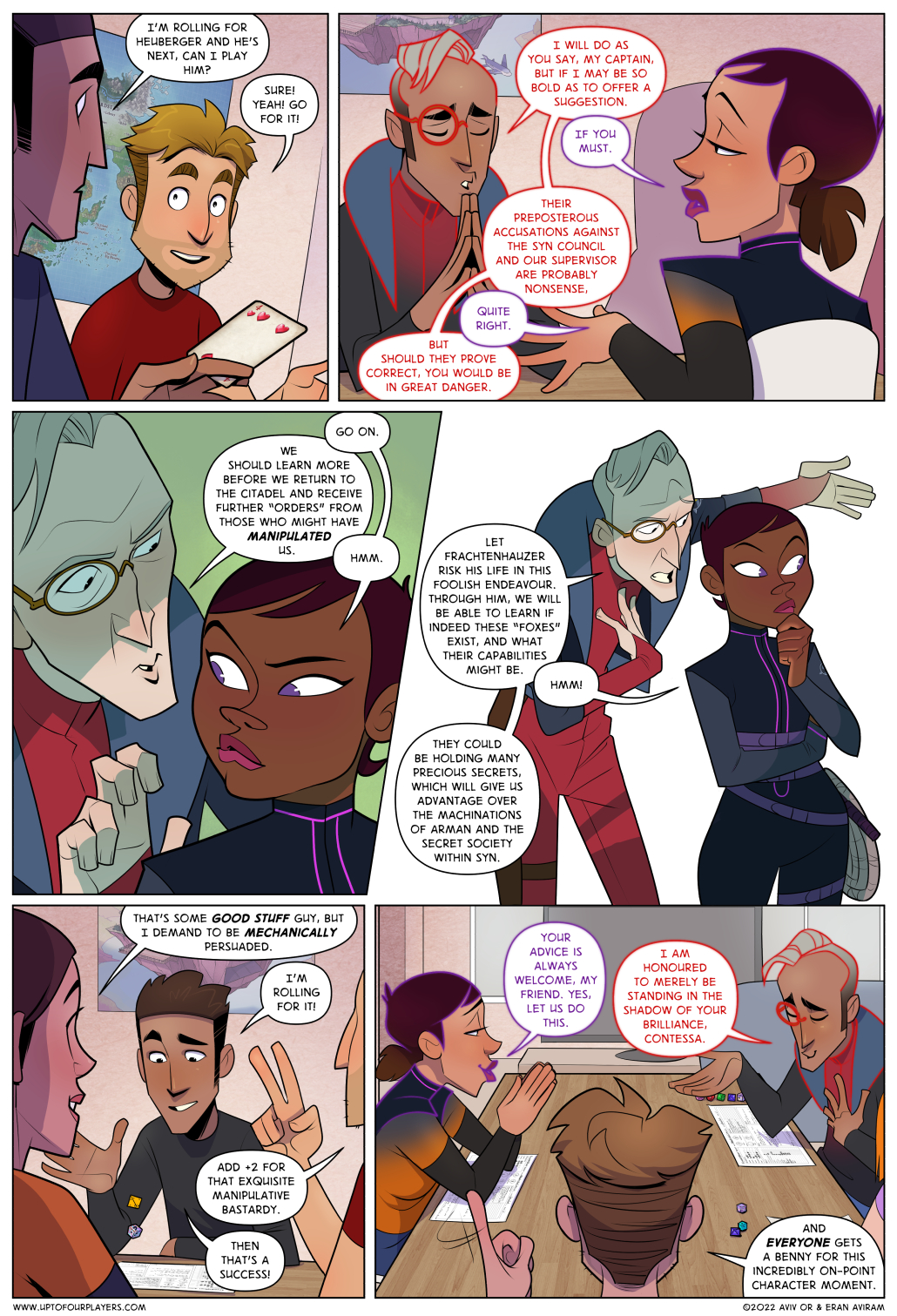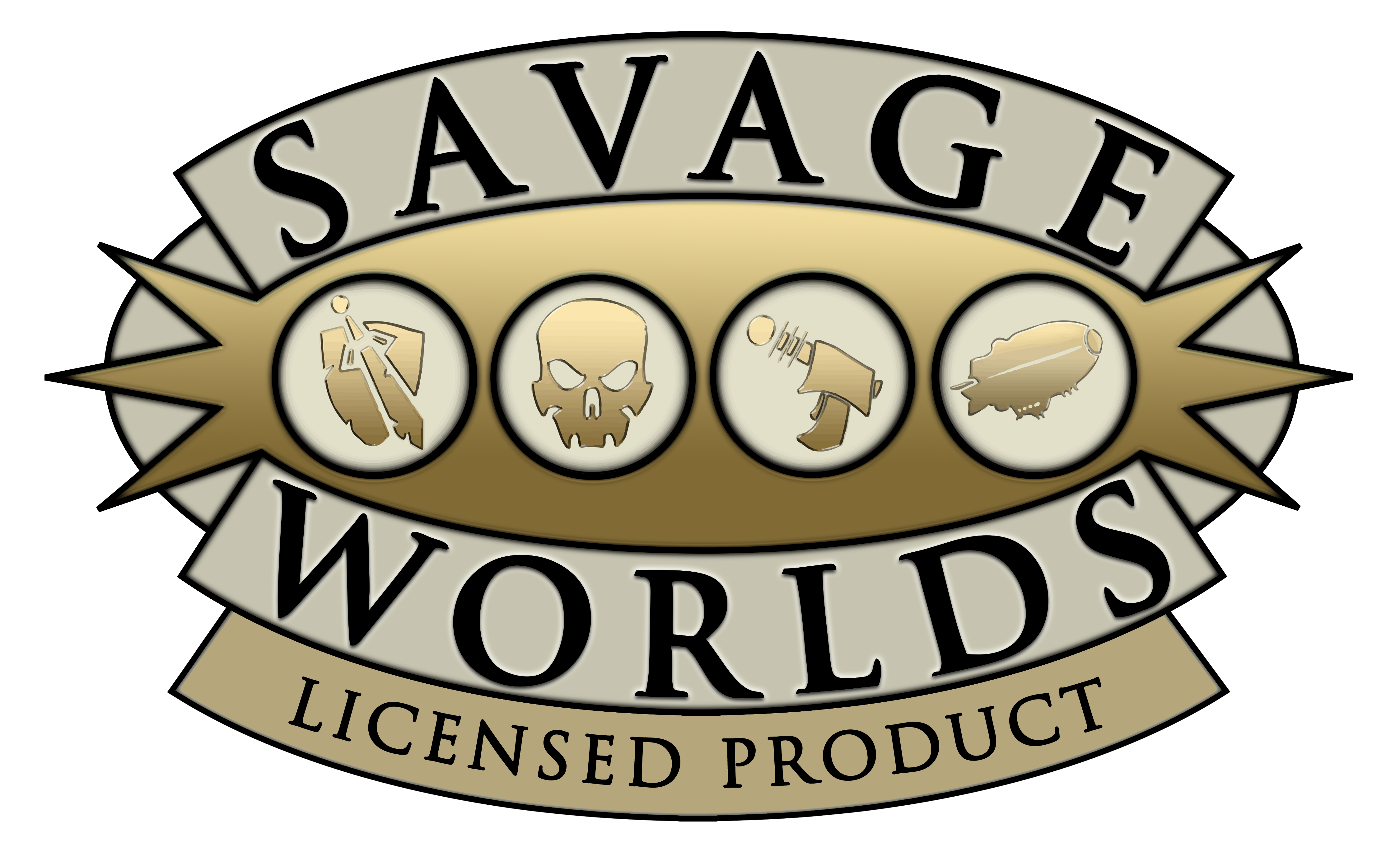There are tables in which the possibility of letting a player portray an NPC is ludicrous. In those same tables, I think, the opposite is also strictly believed – that others aren’t allowed to determine anything about “my PC” – Only myself and the rules have access to my character, no one else can touch her.
I think this is a valid way to play, but it’s very important to realise it’s only one of several ways to play. You know what, we should talk about the audience.
I believe we can place all participants in the game (be the players or GM) on a scale between “owner” and “audience”, and your place on this scale shifts all the time.
When you act as the owner of the character, you portray her dutifully, and make decisions as she would make them. You are looking at the imaginary world through her eyes, and not looking at her from outside, you’re not the audience.
When you act as the audience, you make decisions according to what would look best on the screen if this were a show you’re watching. You watch the characters – whether the one you’re holding the character sheet for, or others – as tools for drama. (The word “audience” doesn’t really work here, because it hints at passivity and yet it describes a role in which you make decisions, but “owner” wasn’t great either; the terminology is still a work in progress.)
Some groups and some systems tend to gravitate toward one end of the scale, but it’s probably best to be aware of its existence and willing to shift around it as befitting the group. The classic example is the “This is what my character would do” moment, in which playing as the owner ruins the experience for everyone, so, you shouldn’t. If you create within your group an atmosphere that gives equal legitimacy to making decisions based on rationales other then “correct portrayal”, then it’s easy for everyone to shift along the scale as needed.
In the case of Savage Worlds especially, it’s probably best to be relaxed about this shift, to see your character more as a pawn in a dramatic experience we all create together (along with the rules), rather than a person you should first and foremost attempt to portray. All sort of little things push toward it, for example the Dramatic Task concept itself, which greatly abstracts your PC’s participation, or the emotional Hindrances which are basically prompts to make some fun and get some Bennies.
What we see happening in the page above could probably happen in many systems, but I think it’s especially easy in Savage Worlds. Giving the players control over NPCs is built into the rules, at least in the case of extras, but taking it a step forward into Wild Cards is a simple matter. It’s a natural extension of the already established understanding that character ownership can be a bit malleable. It’s also clear to everyone that Rotem and Guy won’t keep playing as Contessa and Heuberger, that this is a one-time thing.
But it’s not just that Rotem and Guy instinctually feel that this can be allowed – they also have the motivation to do it. First, intrinsically, because they kinda want to portray these NPCs for a moment and it creates a cool scene. But secondly, extrinsically, they have in the back of their mind an awareness that doing cool things can reward you with Bennies. Again, Savage Worlds helps in enabling this situation.
One last point, and then you’re free to go – “Rotem got a Clubs, so this should be a Complication, but it’s resolved in roleplay and one roll, that doesn’t much sound like a Complication?”
First, rolling is a super legitimate way to resolve Complications. Second, roleplaying is also a super legitimate way to resolve Complications. It’s easy to focus on the most obvious reason for the existence of Complications – to create surprising challenges – but we should remember that challenges, in the first place, only exist in order to create and resolve tension, which is the basis of all drama.
What we have going in this page is a cool moment and an excellent opportunity for the players to try something new, and these by themselves should be reason enough to allow this scene to happen (tension and drama are only some of the things we want to see happening around the table), but we also have tension, because in that first panel no one, not even Guy, is sure what’s actually going to happen once he opens his mouth. That’s tension. They’re all excited to see what he has in mind, and at this point, he is just thinking about how to talk smarmy and try to appeal to Contessa’s ego.
The page ends with Rotem deciding she doesn’t feel comfortable just overcoming the Complication by saying “yes” as an NPC, so she calls for a roll – and Nadav’s answer does two things. First, by acknowledging Rotem’s words, he allows for the roll to happen; deciding on when to use the rules is usually the GM’s role, so he needs to give his approval for this. Secondly, by providing a lovely bonus, he is all but saying “this roll is going to succeed”, thus allowing for the roll to still happen (and satisfy Rotem) but with an almost guaranteed success (because in his mind, this should definitely work). Yet there’s always the chance of a double 1, which is great, because that means there’s some tension even with this little roll.
Anyway, how your week’s been?




